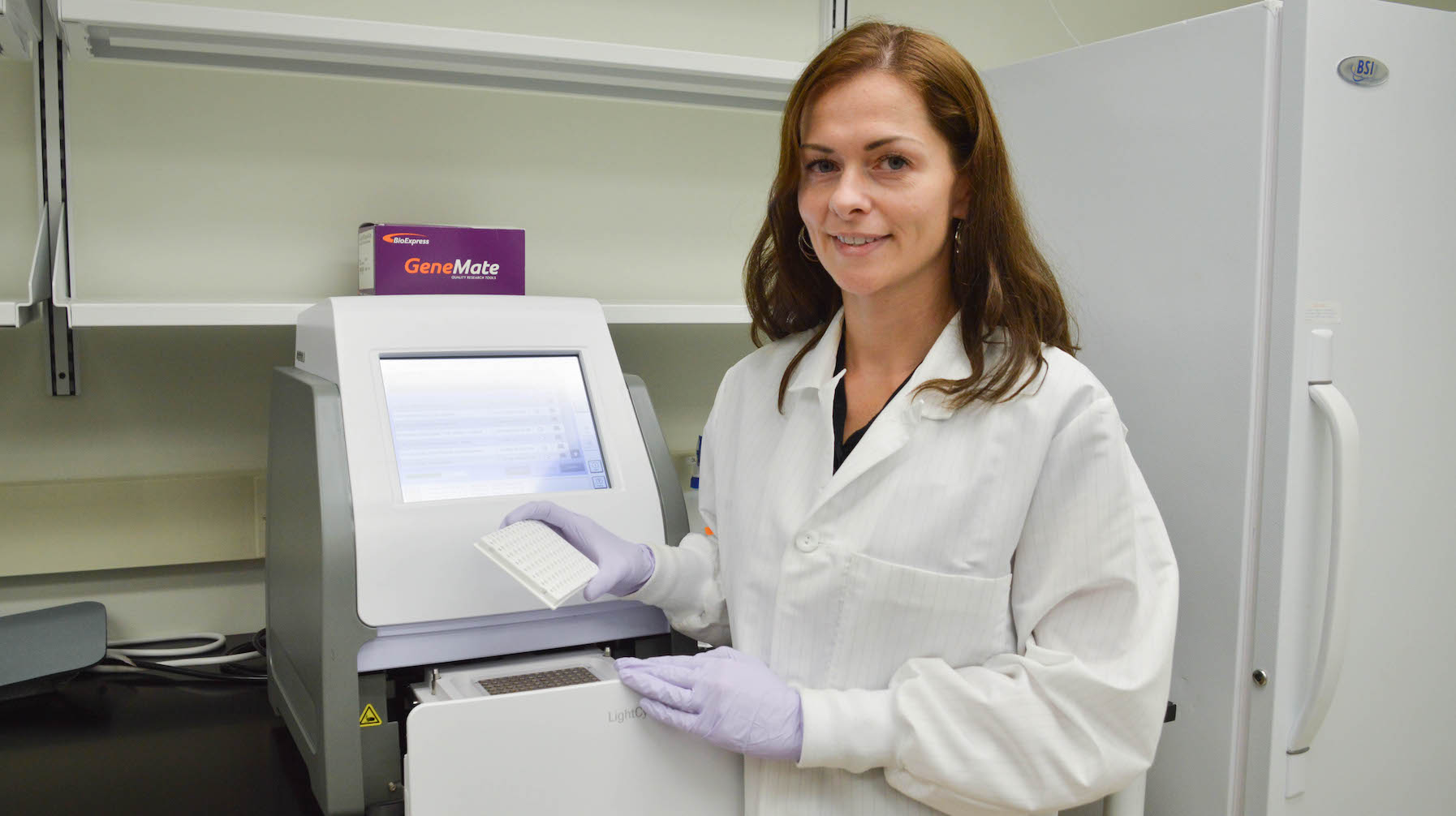A scientist at the Oklahoma Medical Research Foundation has discovered a targeted therapy that could improve treatment and long-term outcomes for ovarian cancer.
The findings from OMRF researcher Magdalena Bieniasz, Ph.D., could pave the way for better personalized medicine options for women who have the deadliest form of the disease. Known as high-grade serous ovarian carcinoma, it accounts for nearly 70% of all ovarian cancer cases and is frequently resistant to chemotherapy.
“In the majority of patients with ovarian cancer, even if chemotherapy works well initially, the tumors return and do not respond well the second time, leading to death,” said Bieniasz. “To overcome this, we are looking for more specific approaches.”
Bieniasz identified an experimental compound called AD80 that was more effective than chemotherapy at initial treatment of ovarian cancer tumor samples taken from both humans and mice. The compound also helped stop tumor metastasis and cancer recurrence, potentially significantly improving long-term outcomes. The research was published in the journal Genes & Cancer.
In collaboration with oncologists at OU Health Stephenson Cancer Center, Bieniasz is testing drugs to block a specific cell receptor that is implicated in half of the ovarian cancer tumors she studied.
When identifying a potential therapy, researchers look for compounds that can block even a single gene, receptor or pathway involved in the disease process. AD80 compound showed increased potential by blocking multiple pathways.
“It helped more than anything we’ve ever looked at,” said Bieniasz, noting that the drug also shows promise for breast, lung and prostate cancers.
The next step will be to tailor and adapt the compound into a precision treatment for certain forms of ovarian cancer.
“These treatments are designed in a way to target only the cancer cells, but not healthy cells,” she said. “Ovarian cancer is the fifth-leading cause of cancer deaths among American women and sorely needs better options. This is potentially a huge step in the right direction.”
Funding for the research was provided by National Cancer Institute grants 5K22CA207602-02 and P30CA225520. The NCI is part of the National Institutes of Health.



